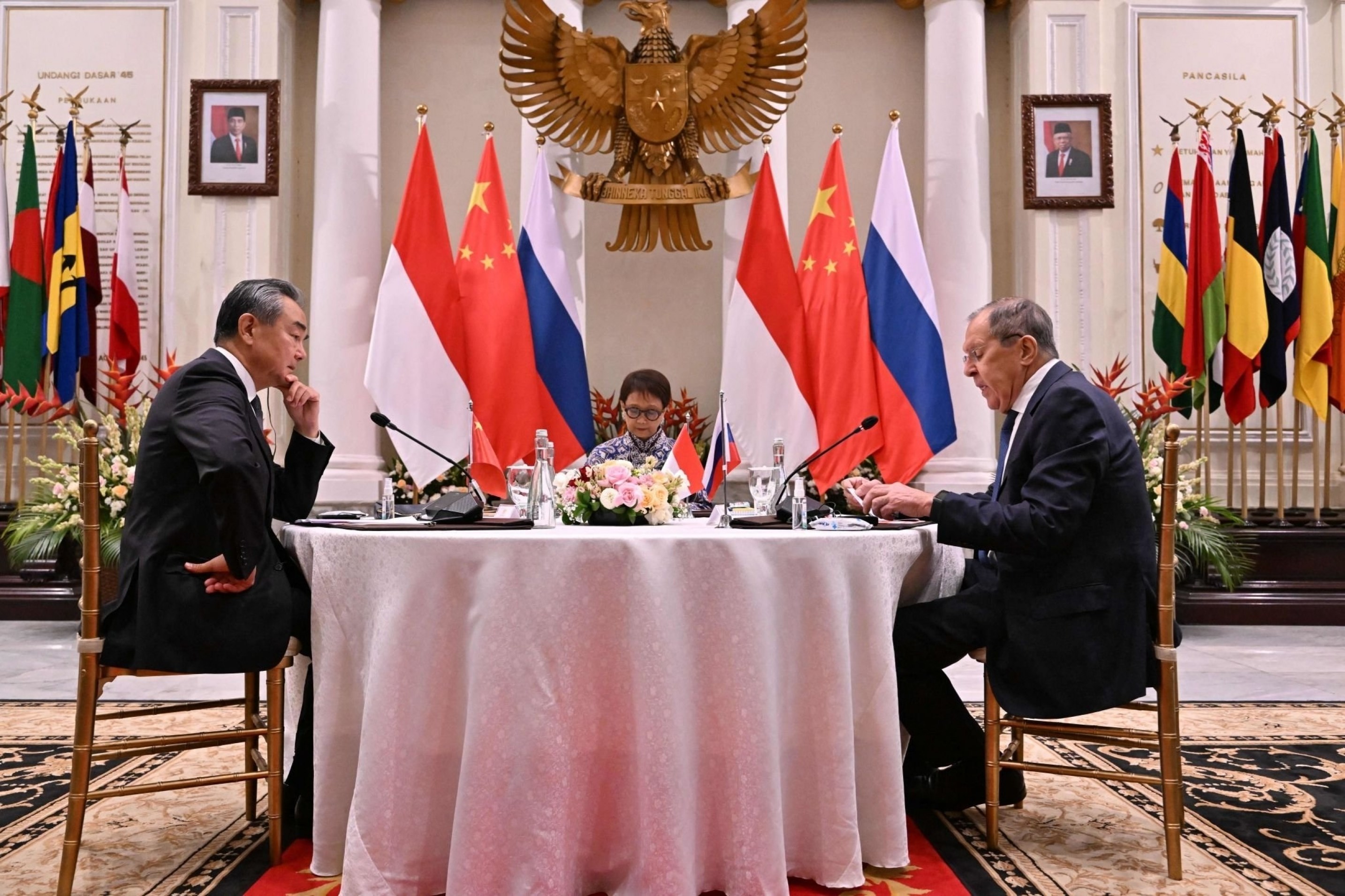Russia, China FMs discuss global issues, Ukraine war over phone call
Foreign Ministers Sergey Lavrov and Wang Yi have noted their rejection of confrontational policies employed by the West against Russia and China, in an attempt to hinder the development.
-

Chinese Foreign Minister Wang Yi (L), speaks with Indonesia's Foreign Minister Retno Marsudi (C) and Russia's Foreign Minister Sergey Lavrov (R) during the trilateral meeting at the Foreign Ministry office in Jakarta, Indonesia, on July 12, 2023. (AFP)
Russian Foreign Minister Sergey Lavrov and Chinese Foreign Minister Wang Yi discussed several global issues, including the Ukrainian crisis and bilateral relations during a telephone call, the Russian Foreign Ministry stated.
"The parties highly appreciated the ongoing development of Russian-Chinese relations, which demonstrate stability and positive dynamics amid general geopolitical instability on the planet," the ministry said.
The officials "touched upon a number of hot regional topics, including the Ukrainian crisis," the statement added.
The top diplomats noted their rejection of confrontational policies employed by the West against Russia and China in an attempt to hinder and contain the two countries' development through the means of unilateral sanctions and other "illegitimate methods."
"They gave a positive assessment of the constructive dialogue and the high level of cooperation between Moscow and Beijing within the United Nations, BRICS, SCO (Shanghai Cooperation Organization), the Group of Twenty, and other international structures," the ministry revealed through a press release.
The ministers reaffirmed "their readiness to continue close foreign policy coordination," as they seek to implement agreements that would further the scope of their bilateral cooperation.
This marked the first telephone call between the foreign ministers of Russian and China after Wang Yi's appointment to the top governmental position, in which the Russian minister "congratulated his Chinese counterpart on his recent appointment as Chinese Foreign Minister and wished him great success in his new demanding role."
On February 24, China issued a 12-point position paper on Ukraine that highlighted all the steps required to reach a "political settlement".
“Conflict and war benefit no one. All parties must stay rational and exercise restraint, avoid fanning the flames and aggravating tensions, and prevent the crisis from deteriorating further or even spiraling out of control,” the document said.
These include respecting the sovereignty of all countries, abandoning the Cold War mentality, ceasing hostilities, resuming peace talks, resolving the humanitarian crisis, protecting civilians and POWs, keeping nuclear power plants safe, reducing strategic risks, facilitating grain exports, stopping unilateral sanctions, keeping industrial and supply chains stable, and promoting post-conflict reconstruction.

 2 Min Read
2 Min Read








